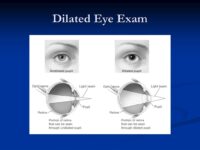Hey there, eyeglass wearers and contact lens enthusiasts! Are you tired of constantly reaching for your specs or poking your eyes every morning? Well, we’ve got something that might just change your life – LASIK laser eye surgery. If you’ve ever dreamt of crystal-clear vision without the hassle of corrective lenses, then this blog post is for you. Now, before you jump headfirst into the world of LASIK, let’s weigh the pros and cons together. From the potential benefits of ditching your glasses to the potential risks of going under the laser, we’ll explore it all. So, grab a cup of coffee, kick back, and let’s dive into the fascinating world of LASIK laser eye surgery.
What Is LASIK Laser Eye Surgery?
LASIK laser eye surgery offers several advantages when it comes to correcting vision problems. Firstly, it is a surgical procedure specifically designed to treat common conditions like nearsightedness, farsightedness, and astigmatism. By reshaping the cornea, LASIK can significantly improve a person’s eyesight, potentially eliminating the need for eyeglasses or contact lenses. This not only contributes to increased convenience and comfort in daily life but also enhances one’s self-esteem. Furthermore, LASIK surgeries are known for their quick recovery time, with most patients experiencing improved vision within a day or two after the procedure. The surgery itself is relatively short and does not require a hospital stay, minimizing disruption to one’s routine. However, it is essential to consider the potential disadvantages of LASIK laser eye surgery as well. While rare, complications can occur, such as dry eyes, glare, halos around lights, or even persistent vision changes. Additionally, LASIK may not be suitable for everyone due to factors such as unstable vision, thin corneas, or certain eye conditions. It is crucial to consult with a qualified eye surgeon and thoroughly discuss the risks and benefits before deciding to undergo LASIK laser eye surgery. Overall, this advanced procedure holds many advantages in terms of convenience and visual correction, but potential drawbacks and individual circumstances should be carefully considered.
Lasik laser eye surgery offers several advantages and disadvantages for those considering the procedure. One significant advantage is the use of an excimer laser, a specialized form of light energy, to reshape the cornea. This precise removal of small amounts of tissue from the surface of the eye results in improved vision. The benefits of this technique are often noticeable immediately after surgery, providing patients with rapid visual improvement. However, it is important to consider the potential disadvantages as well. Some individuals may experience temporary side effects, such as dry eyes or halos around lights, which can be bothersome during the recovery period. Additionally, while Lasik surgery has a high success rate, there is a small risk of complications, such as infection or overcorrection. Therefore, although Lasik laser eye surgery offers remarkable advantages in terms of vision improvement with its use of an excimer laser and immediate results, patients should carefully weigh these benefits against the potential disadvantages.
Next, while LASIK eye surgery offers numerous advantages, it is crucial to acknowledge the potential risks associated with the procedure. By discussing these risks with your doctor beforehand, you ensure transparency and gain a comprehensive understanding of what to expect. This empowers you to make an informed decision regarding LASIK surgery and weigh the advantages against the potential disadvantages. Remember, each individual’s circumstances are unique, and what may be advantageous for one person may not be the case for another. Therefore, an open dialogue with your doctor becomes paramount in order to determine if LASIK surgery is the right choice for you.
Pros and Cons of LASIK Laser Eye Surgery
When considering the advantages and disadvantages of LASIK laser eye surgery, it becomes evident that this procedure offers numerous benefits. One of the most significant advantages is the near-instant improvement in vision that it provides. Patients often experience a remarkable enhancement in their eyesight shortly after the surgery, which greatly enhances their quality of life. Additionally, LASIK surgery has the potential to reduce a person’s dependency on glasses and contact lenses, freeing them from the inconvenience and costs associated with these aids. Moreover, this procedure is typically painless and quick, making it a preferable option for individuals seeking to improve their vision without enduring extensive discomfort or lengthy recovery periods. However, like any surgical procedure, LASIK surgery does have its potential drawbacks and risks that must be considered. These may include dry eyes, glare, halos, or even the possibility of needing further refinement surgeries. Therefore, it is important for individuals to thoroughly weigh the advantages and disadvantages of LASIK laser eye surgery before making an informed decision about whether to proceed with the procedure.
When considering the advantages and disadvantages of LASIK laser eye surgery, it is important to acknowledge that there are potential drawbacks to this procedure. While LASIK can provide significant benefits, such as improving vision and reducing the reliance on glasses or contact lenses, there are potential risks involved. These include issues such as dry eyes, infection, and the possibility of experiencing halos or glare around objects. Additionally, there is a chance that the vision may not be fully corrected after the procedure. It is essential for individuals considering LASIK to carefully weigh these potential disadvantages alongside the potential advantages to make an informed decision.
Finally, it is important to consider the advantages and disadvantages of LASIK laser eye surgery before making a decision. While the procedure offers numerous benefits such as improved vision, reduced dependence on glasses or contact lenses, and minimal discomfort during recovery, it is crucial to be aware of the potential risks involved. Complications like dry eyes, halos, or glares may occur post-surgery, and there is always a chance of needing additional treatment in the future. Moreover, the financial costs associated with LASIK may be a significant deterrent for some individuals, preventing them from being able to receive this potentially life-changing procedure. Therefore, it is crucial for each person to carefully weigh the pros and cons and consult with their healthcare provider before committing to LASIK laser eye surgery.
Potential Side Effects and Risks of LASIK Laser Eye Surgery
LASIK laser eye surgery offers numerous advantages in terms of vision correction, however, it is important to consider the potential risks and disadvantages associated with the procedure. One such risk is the development of dry eye syndrome, which can occur due to damage to the tear ducts. Although LASIK aims to improve vision, this condition can cause discomfort, increased sensitivity to light, and blurry vision. While these symptoms may be temporary and manageable with proper treatment, they should not be overlooked when weighing the advantages and disadvantages of LASIK laser eye surgery.
Lasik laser eye surgery offers numerous advantages, such as improved vision and reduced reliance on glasses or contact lenses. However, it is important to consider the potential drawbacks as well. One significant disadvantage is the possibility of over-correction or under-correction of the eyes, which can lead to blurred vision or the need for further corrective surgery. Although these occurrences are relatively rare, they can cause frustration and dissatisfaction among patients. It is crucial for individuals considering Lasik to weigh the potential risks alongside the benefits. Consulting with a qualified surgeon and conducting thorough research can help minimize the chances of experiencing such complications. By maintaining a cautious and informed approach, individuals can make an educated decision about whether Lasik laser eye surgery is the right choice for their visual needs.
Also, while LASIK laser eye surgery offers numerous advantages, such as short recovery time, minimal discomfort, and improved vision, it is important to consider the potential disadvantages. Flap complications can occur, leading to detachment or wrinkles on the flap, which can negatively impact visual acuity. Such irregularities may require additional corrective surgeries to restore the desired outcome. However, it is crucial to remember the overall success rate of LASIK surgery remains high, and these potential complications should be weighed against the potential benefits. Therefore, individuals considering LASIK laser eye surgery should consult with their healthcare provider to thoroughly evaluate the advantages and disadvantages before making an informed decision.
Who Is a Good Candidate for LASIK Laser Eye Surgery?
Lasik laser eye surgery offers numerous advantages and disadvantages to consider before making a decision. To begin, one must meet certain requirements to be considered a good candidate for the procedure. Being at least 18 years old is a crucial prerequisite, ensuring the eyes have fully developed before undergoing surgery. Additionally, having had a stable vision prescription for at least one year is important to ascertain the consistency of the individual’s vision. These prerequisites guarantee a higher chance of success and satisfaction with the surgery. However, despite its advantages, lasik laser eye surgery also carries inherent risks and disadvantages. Potential risks include dry eyes, glare, halos, and even vision loss, although these complications are relatively rare. Furthermore, the procedure is not always covered by insurance, making it costly for some individuals. As with any medical procedure, determining if the benefits outweigh the drawbacks is essential. One must carefully weigh the advantages of improved vision without glasses or contact lenses against the potential disadvantages and risks associated with lasik laser eye surgery. Ultimately, consulting with an eye care professional is crucial in making an informed decision regarding this life-changing procedure.
When considering the advantages and disadvantages of LASIK laser eye surgery, it is important to note certain criteria for candidacy. Additionally, individuals should not have any diseases or conditions, such as autoimmune diseases or dry eyes, which may affect their cornea or respond adversely to the procedure. This is crucial as these conditions can potentially compromise the effectiveness and safety of the surgery. By thoroughly assessing and ensuring the absence of these conditions, LASIK can be a viable option for those seeking vision correction.
Furthermore, when considering the advantages and disadvantages of LASIK laser eye surgery, it is crucial to acknowledge the limitations it may have in treating severe cases of nearsightedness, farsightedness, or astigmatism. Although LASIK may not always be effective in these circumstances, it is essential to understand there are alternative laser eye surgeries available for individuals experiencing these conditions. Ophthalmologists can provide comprehensive evaluations and recommend the most suitable procedure based on the specific needs of each patient. Therefore, while LASIK offers numerous benefits for individuals with mild to moderate refractive errors, it is important to consult with a medical professional to explore all the available options and determine the most appropriate course of action for optimal vision correction.
Financing Options for LASIK Laser Eye Surgery
When considering the advantages and disadvantages of LASIK laser eye surgery, one of the biggest benefits to highlight is its increasing affordability. This procedure has become more accessible to a wider range of individuals due to the availability of financing options. Patients now have the opportunity to make the cost of LASIK more manageable by spreading out payments over time, making it a more viable option for those who previously may not have been able to afford it. This increase in affordability expands the reach of LASIK laser eye surgery, making it a potential solution for individuals seeking to correct their vision.
Lasik laser eye surgery offers a multitude of advantages for those seeking to improve their vision. One major advantage is the accessibility of financing options for individuals interested in undergoing the procedure. Those who are concerned about the cost can explore various financing options tailored to their needs. This includes flexible payment plans with low monthly rates, allowing them to manage the expenses without feeling burdened. Another enticing option is the opportunity to make interest-free payments for up to 24 months, providing a convenient way to pay for the surgery without incurring additional costs. These financial advantages empower individuals to pursue the benefits of Lasik laser eye surgery, ultimately leading to improved vision and a higher quality of life.
One potential disadvantage of financing LASIK laser eye surgery is the limited accessibility it presents for individuals with below-average credit scores. Lenders commonly rely on a person’s credit score as a primary criterion to assess their eligibility for financing options. Consequently, those with less than stellar credit may encounter difficulties in receiving financial assistance for this procedure. This may restrict their ability to undergo LASIK and enjoy its advantages. However, it is important to note this disadvantage within the broader context of the numerous benefits associated with LASIK laser eye surgery.
However, despite the potential advantages of Lasik laser eye surgery, it is important to consider the potential disadvantages as well. One such disadvantage is the long-term cost associated with making payments over time. While paying for the procedure outright may require a larger upfront investment, it could ultimately result in paying less in the long run. This is because financing options often carry interest rates or fees, increasing the total cost of the procedure over time. Therefore, individuals considering Lasik surgery should carefully weigh the financial implications and consider their ability to pay upfront versus the convenience of making payments over time.
Advantages of Getting LASIK Laser Eye Surgery
Lasik laser eye surgery offers numerous advantages and disadvantages, with one of the most notable benefits being the potential for improved vision. Through this procedure, patients have the opportunity to significantly reduce their reliance on glasses and contact lenses. In fact, in many cases, individuals can even achieve the coveted 20/20 vision following the surgery. This advancement in visual acuity not only enhances one’s daily activities but also provides a newfound freedom and convenience. Additionally, by eliminating the constant need for eyewear, individuals can partake in various physical activities without the hindrance of glasses or worries of losing contact lenses. However, it is important to note the potential disadvantages associated with LASIK laser eye surgery as well. These include risks such as infection, dry eyes, or potential vision complications. Therefore, it is crucial to thoroughly discuss these pros and cons with a qualified eye surgeon before making a decision.
LASIK laser eye surgery offers numerous advantages and disadvantages. One of the significant advantages is its potential to be a cost-saving measure over time. By opting for LASIK, individuals can eliminate the necessity of purchasing and replacing contacts or glasses every year, ultimately reducing additional expenses. This financial benefit is often appreciated by those who have relied on corrective eyewear for years. However, it is important to consider the potential disadvantages as well. These may include risks such as dry eyes, glare, halos, or even a loss of visual acuity. Additionally, LASIK may not be suitable for everyone, and individual factors should be carefully evaluated before undergoing the procedure. Thus, while LASIK laser eye surgery can offer financial relief and freedom from corrective eyewear, it is crucial to weigh both the advantages and disadvantages to make a well-informed decision.
One of the advantages of LASIK laser eye surgery is its short recovery times. After the procedure, many patients are able to resume their normal routines within 24 hours, showcasing the efficiency of this surgical technique. With just one week of rest and follow-up visits with their doctor, most individuals experience a full recovery. This allows them to quickly regain their vision and enjoy the benefits of the surgery. However, it is important to note the need for careful consideration before undergoing LASIK, as there may be potential disadvantages to consider as well.
All in all, despite the potential concerns and risks associated with LASIK laser eye surgery, its advantages seem to outweigh the disadvantages. With a high success rate and significant improvement in vision, LASIK has emerged as a reliable and effective option for those looking to correct their refractive errors. The procedure is quick, painless, and requires minimal recovery time. Moreover, studies have shown the safety of LASIK when performed by experienced ophthalmologists, as complications are rare and generally minor. Therefore, for individuals considering LASIK, it is crucial to consult with a qualified professional to weigh the pros and cons and make informed decisions about this life-changing procedure.
Disadvantages of Getting LASIK Laser Eye Surgery
Lasik laser eye surgery undoubtedly offers several advantages for those seeking to correct their vision. It is a highly effective procedure that can significantly improve one’s eyesight, eliminating the need for glasses or contacts. Moreover, Lasik surgery is relatively quick and painless, with a short recovery time, allowing patients to resume their normal activities promptly. However, it is essential to recognize that this procedure is not without its drawbacks. One of the major disadvantages is the potential risk of complications, such as halos or starbursts around lights, dry eyes, and even vision loss. While these complications are relatively rare, it is crucial for potential patients to be aware of these risks and make an informed decision in consultation with their eye surgeon. Despite these considerations, Lasik laser eye surgery remains a viable option for many individuals seeking improved vision, offering remarkable benefits while also acknowledging the potential limitations associated with the procedure.
Lasik laser eye surgery offers both advantages and disadvantages to those seeking improved vision. One of the main advantages is the potential for permanent results, freeing individuals from the need for glasses or contact lenses. However, it is important to note that this is not always the case for everyone. While many patients experience long-lasting outcomes, others may require a “touch-up” procedure within a few years after the initial surgery. This aspect of Lasik should be considered as a potential disadvantage, as it implies that the results may not be permanent for everyone. Despite this potential drawback, Lasik laser eye surgery still remains a popular choice for individuals who desire improved vision without the need for corrective eyewear.
Also, while LASIK laser eye surgery offers numerous advantages such as improved vision and a reduced reliance on glasses or contact lenses, it is crucial to consider the potential disadvantages before making a decision. One notable drawback is the high cost associated with the procedure, which may not be covered by insurance. In fact, in certain situations, individuals may find themselves facing a financial burden of several thousand dollars per eye. Therefore, it is essential to carefully weigh the advantages and disadvantages of LASIK, including the financial aspects, to make an informed decision that aligns with one’s personal circumstances and priorities.
Alternatives to Consider If You Are Not a Good Candidate for LASIK
If you are not a good candidate for LASIK eye surgery, there are several alternative treatments to consider. One such treatment is implantable contact lenses (ICLS), which can provide similar vision correction to LASIK but without altering the shape of the cornea. This option is advantageous for individuals with thin corneas or higher prescriptions. Another alternative is refractive lens exchange (RLE), where the natural lens of the eye is replaced with a synthetic lens. This procedure is beneficial for those with presbyopia or extreme nearsightedness or farsightedness. Additionally, PRK and LASEK laser eye surgeries are alternative options for those who are not suitable candidates for LASIK. These procedures involve removing the thin outer layer of the cornea and reshaping it using a laser. While these alternatives offer advantages, it is important to consider their drawbacks. For instance, ICLs may pose a higher risk of certain complications, and RLE carries the potential for cataract development later in life. PRK and LASEK have longer recovery times compared to LASIK and may cause discomfort during the healing process. Therefore, it is crucial to consult with a qualified eye care professional to determine the most suitable option for achieving optimal vision correction while considering your individual needs and limitations.
ICLS are considered as a viable alternative for individuals with extremely high prescriptions, presenting certain advantages over LASIK laser eye surgery in terms of vision improvement. By inserting a lens directly into the eye, ICLs provide the potential to enhance vision beyond what LASIK can achieve, making them a suitable option for those with significant vision impairments. However, it is important to acknowledge the potential disadvantages of ICLs in comparison to LASIK. While ICLs can address more severe prescriptions, they involve a surgical procedure, which may carry inherent risks and require a longer recovery period. Additionally, the insertion of a lens into the eye may pose a higher risk of complications such as infection or inflammation. Consequently, individuals considering ICLs should carefully weigh the benefits against the potential disadvantages to make informed decisions about their vision correction options.
RLE, or refractive lens exchange, is a surgical option for individuals facing vision problems associated with aging, such as presbyopia or cataracts. This procedure offers several advantages and disadvantages when considering the broader topic of lasik laser eye surgery. One major advantage of RLE is its ability to address not just one but multiple vision issues simultaneously. By replacing the natural lens of the eye with a customized artificial lens, RLE can effectively correct nearsightedness, farsightedness, and astigmatism in one procedure. This comprehensive approach saves patients from multiple surgeries and allows for a more efficient treatment process. However, it is essential to consider some potential drawbacks of RLE. As with any surgical procedure, there are inherent risks involved, such as infection or inflammation. Additionally, the cost of RLE can be higher compared to other vision correction options, which may pose a challenge for some individuals. Furthermore, it is crucial to consult with a qualified ophthalmologist to determine if RLE is the right choice, as not everyone may be a suitable candidate due to certain underlying conditions or eye health issues. Thus, while RLE offers the advantage of addressing multiple vision problems simultaneously, it is crucial to weigh the potential risks and costs before making a decision.
Next, it is important to consider the advantages and disadvantages of LASIK laser eye surgery, as well as alternative options like PRK and LASEK. While LASIK remains a popular choice for many individuals seeking vision correction, some may prefer to avoid surgery altogether. In such cases, PRK and LASEK offer viable alternatives as they also utilize lasers to reshape the cornea and improve vision. These procedures can be particularly beneficial for individuals with thinner corneas or those who engage in high-impact activities. Additionally, since PRK and LASEK do not require the creation of a corneal flap like LASIK, there is a decreased risk of flap-related complications. However, it is important to note the extended recovery time associated with PRK and LASEK, as compared to LASIK. Therefore, careful consideration of the advantages and disadvantages of each procedure, along with consultation with a qualified ophthalmologist, is essential in making the best decision for one’s individual circumstances and vision goals.
Preparing for Your First Consultation with a Surgeon
When considering Lasik laser eye surgery, it is crucial to come well-prepared before your initial consultation with a surgeon. Thoroughly researching the procedure beforehand allows you to ask informed questions and gain a comprehensive understanding of the advantages and disadvantages associated with Lasik. By arming yourself with knowledge, you can approach the consultation confidently and make well-informed decisions about your eye health. Understanding the advantages of Lasik, such as improved vision without the need for glasses or contact lenses, can be enticing for individuals seeking visual freedom. Additionally, the procedure boasts a fairly quick recovery time and minimal discomfort during and after the surgery. However, it is also important to be aware of the potential disadvantages. Some patients may experience dry eyes, glare, or halos around lights, especially at night. Moreover, while rare, there is a slight risk of complications or a need for additional corrective surgeries. Ensuring you are well-informed about both the benefits and drawbacks of Lasik laser eye surgery will empower you to have meaningful discussions with your surgeon and make an informed decision about pursuing this procedure.
When considering the advantages and disadvantages of LASIK laser eye surgery, it is crucial to have an open and thorough discussion with your surgeon regarding any previous medical conditions or ongoing medication regimens. This step is important as it may directly impact your eligibility for the surgery, and also how it could potentially influence the associated risks. By disclosing this information, your surgeon can accurately assess whether LASIK is a suitable option for you, taking into account your unique medical history and current circumstances. Such transparency allows for a more comprehensive evaluation of the advantages and disadvantages of LASIK laser eye surgery, ensuring a safe and effective procedure tailored to your individual needs.
Read also: Corneal Abrasion Fluorescein
Thereafter, it is crucial to request references from your surgeon regarding former patients who have undergone the LASIK laser eye surgery, as this will allow you to gain further insights into their experiences and obtain a more comprehensive understanding of the procedure. By speaking with these individuals, you can gather valuable information about potential advantages and disadvantages of LASIK, such as the level of discomfort experienced during recovery, the post-surgery visual outcomes, and any unexpected side effects. This personal research is invaluable in assisting you to make a well-informed decision about whether LASIK is the right choice for your individual circumstances. Remember to approach this process with a critical mindset, carefully weighing the feedback received from multiple sources in order to form a comprehensive assessment.







